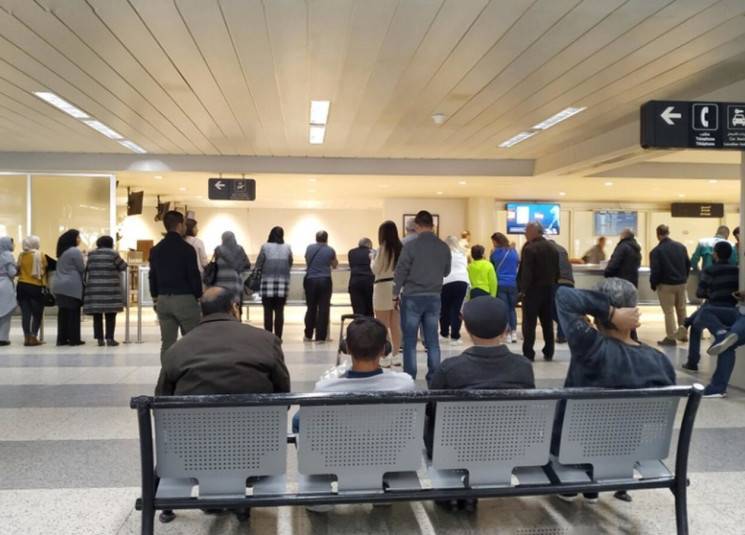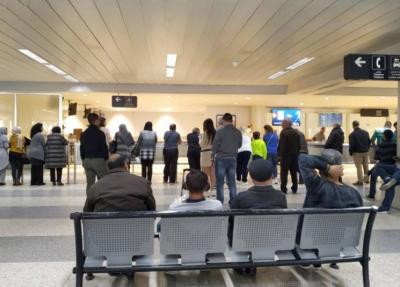The record movement of incoming passengers through Rafic Hariri International Airport has broken the stagnation of the prevailing political situation, coinciding with the Eid al-Adha holiday. Statistics from the Directorate General of Civil Aviation show that from the beginning of July until the 11th, 181,791 passengers entered Lebanon compared to 93,807 who left the country. On July 7 alone, as explained by the Director General of Civil Aviation, Fadi Al-Hassan, to "Nidaa Al-Watan," "a historic record was achieved for Lebanon on the same date with 19,563 passengers entering through the airport," considering "this figure as a very good indicator."
Regarding the sources of destinations to Lebanon, most, according to Al-Hassan, "come from the Istanbul route via other airports in Europe or America or Canada." The Dubai route, which includes tourists from Gulf countries, ranks second after Istanbul, along with flights arriving from various European and Arab countries. Al-Hassan confirms that "the passenger flow will not stop after the holiday, but the inbound movement to Lebanon will continue at the same rate throughout July and August and into the first half of September."
As for the nationalities of the tourists, the largest numbers come from Iraq, Jordan, Egypt, and some Gulf countries that are accustomed to visiting the country. Most of them stayed in Beirut hotels, where owners provided electricity, similar to other hotels in neighboring areas or in the mountains, using their own generators 24/7. Lebanese expatriates mostly stayed in their homes or those of relatives, although they will tour various Lebanese regions and head towards many coastal and mountainous areas.
Pierre Ashkar, head of the Union of Tourist Syndicates in Lebanon, described the first week of the tourism season, which included the days of Eid al-Adha, as "excellent," noting that "hotel occupancy rates reached 80% in all Lebanese regions."




